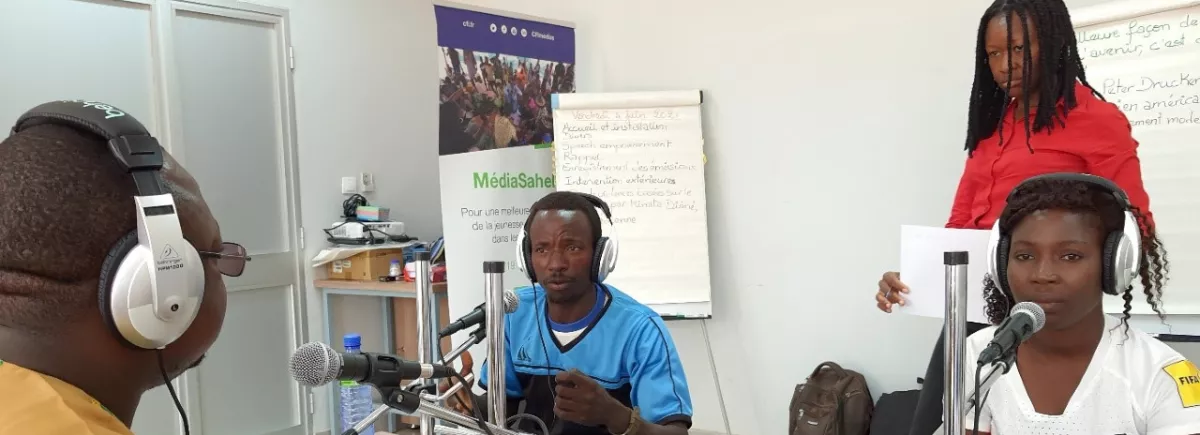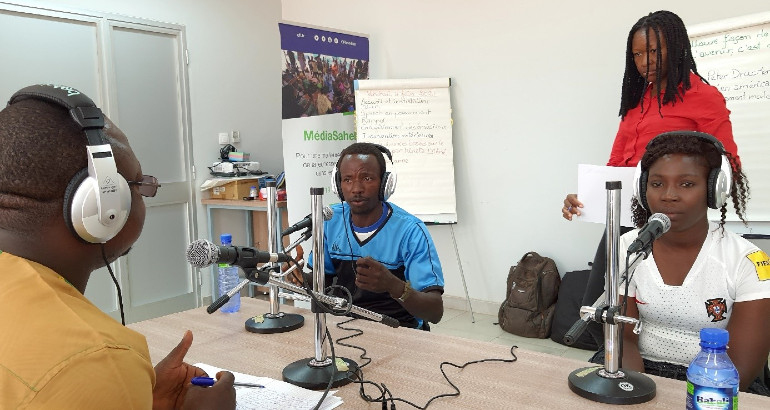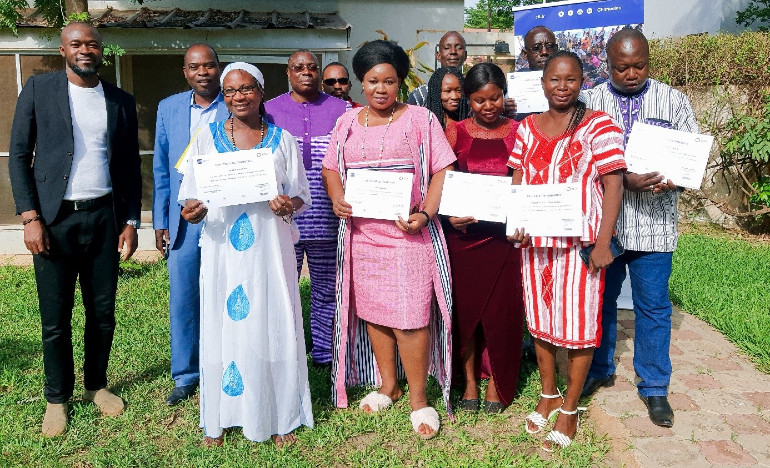
Gender issues for MédiaSahel’s radio partners
Related project
MediaSahelAfter the basics and how to interact, MédiaSahel tackles the theme of gender and conflict. An initial training course was held in Burkina Faso and Mali in late May 2021.
I’ve already led debates on the conflict. When I came here, I thought I had a good knowledge base in this area. But, in reality, these two weeks made me realise that I knew nothing about gender and even less about conflict. I have learned a lot, and I am now eager to show what I am capable of in my output. In fact, I will ask to be put in charge of everything related to these issues at my radio station. The aim is also to boost their vocabulary D’ailleurs, je demanderai à être chargée dans ma radio de tout ce qui porte sur ces questions.
This testimony from S. Touré, a presenter at Radio Oméga, sums up the mood of the journalists who participated in the first training session on gender- and conflict-sensitive journalism, launched in Burkina Faso and Mali in May.
These workshops are intended to increase attendees’ understanding of these issues and raise their awareness of their roles, duties and responsibilities as regards social inequalities and inter-community conflicts. The aim is also to boost their vocabulary and strengthen the arguments they need to use to report on these topics - which are very sensitive issues in the Sahel region - while reminding them of the rules of ethics and deontology in journalism.

As before, these training sessions are aimed at the forty or so radio partners of MédiaSahel in Burkina Faso and Mali. Journalists are the first to be involved, but radio station managers are also invited to participate in several sessions, in order to facilitate a sustainable anchoring of gender-sensitive journalism within the media outlets.
Finding the right words
What you have just done is the beginning of a process of acceptance and awareness, says Antoine Y. of RTB Radio Rurale, who now knows how to dissociate gender from women. Solange S. believes that her role as a journalist also means being a mediator, facilitator and reconciler.dissociate gender from women
What you have just done is the beginning of a process of acceptance and awarenessexplained C. Abissi, outgoing president of the National Union of Free Broadcasting of Burkina Faso UNALFA at the closing of the session. You now understand that finding the right words to convey information is crucial. These are new subjects, but if we remain professional, we will be able to report on this information without being the cause of slip-ups. For his part, the representative of the Burkinabe Ministry of Communication and Parliamentary Relations reiterated that each journalist that we train means a multitude of citizens that we reach.

The gender- and conflict-sensitive journalism training cycle runs until 4 September in Burkina Faso and Mali, and will start in Niger in August.


